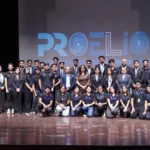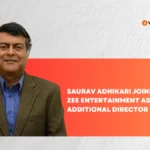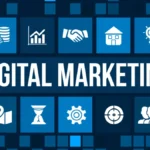Durgesh Tripathi, Communication Professional
In today’s evolving workplace, leadership is no longer defined by the corner office or the title embossed on a nameplate. Instead, it’s about influence, trust, empathy, and the ability to inspire teams. Groundbreaking data from leading organizations like Edelman Trust Institute, Gallup, Businessolver, and Harvard University underscores that the heart of leadership lies in actions, not designations.
Trust is the Bedrock of Leadership
According to the Edelman Trust Barometer, 82% of employees trust their organization more when leaders display authenticity and approachability rather than authoritarian behavior. Trust isn’t given; it’s earned through consistent, transparent, and empathetic interactions.
Influence Outshines Hierarchy
A study by Gallup reveals that 85% of workers believe that a leader’s ability to inspire has a greater impact than their position on an organizational chart. Leaders who empower, rather than dictate, foster collaboration and innovation.
Empathy Drives Engagement
Businessolver data highlights a striking correlation: empathetic leaders see 50% higher employee engagement and retention. In a world prioritizing well-being, empathy isn’t just a soft skill—it’s a strategic advantage.
Adapting Skills for Leadership Excellence
Leadership demands constant evolution. The World Economic Forum reports that 44% of the critical skills for leadership have changed in the past five years. Emotional intelligence, adaptability, and digital fluency now outweigh traditional hierarchical prowess.
Flat Structures Foster Leadership at All Levels
Organizations like Google and Spotify champion flat hierarchies. These structures, as seen globally, encourage leadership to emerge organically across all levels, enabling innovation and agile decision-making.
Self-Initiated Leaders Excel
A Harvard University study emphasizes that employees demonstrating self-initiated leadership behaviors consistently outperform their peers—regardless of their title. Leadership is a mindset, not a job description.
Servant Leadership Closes the Performance Gap
McKinsey & Company reveals that teams led by “servant leaders”—those who prioritize team success over personal gain—outperform their peers by 10–20%. This approach fosters a culture of collaboration, trust, and shared purpose.
Generational Shifts in Leadership Expectations
The workforce is changing, and so are its expectations. Gallup and Businessolver report that 70% of Gen Z employees prioritize leaders who promote collaboration, personal growth, and purpose over traditional leadership models.
Leadership Beyond Titles: A Call to Action
In conclusion, the data is clear: leadership today is about people, not power. Titles might open doors, but trust, empathy, and influence create legacies. Leaders who prioritize relationships over rank and foster an environment of trust, collaboration, and continuous growth will drive the future of work.
What kind of leader do you aspire to be? It’s time to embrace the evolving leadership paradigm. Your actions—not your title—will define your impact.

















